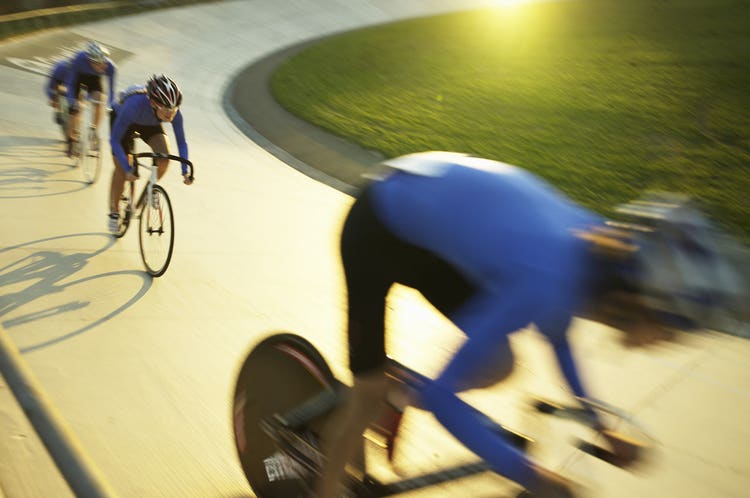Use the Stress Response to Go Farther

The “flight” response can power your resilience—and your run.
As winter turns to spring and treadmills are vacated for trails and paths, this month’s playlist is filled with upbeat tracks to get you moving. To set that stage, let’s investigate one of our body’s most important motivational tools: stress.
Wait, isn’t stress the problem? Isn’t one of the main reasons we work out so hard is to reduce anxiety? While true, stress is your body’s natural response to stimulation. By reorienting your relationship to it, you use a powerful cocktail of hormones and neuropeptides that can be used to keep you pounding the pavement for hours.
The upside of stress
At least that’s the argument psychologist Kelly McGonigal makes in “The Upside of Stress” (Avery; Reprint edition 2016). Too many of us stress about stress. By changing how you react and interact with stressful situations, you not only take away anxiety’s power over you, but you also harness a potent fuel.
Mindset matters. Since Carol Dweck, Ph.D., shifted the focus of psychology with her work on mindsets, numerous thinkers have reoriented the mental and emotional compass of their clients and patients. McGonigal writes that your mindset around stress alters your biochemistry, which in turn changes how you respond to the trigger causing the stress.
For example, she investigates post-traumatic stress disorder patients. What we call the stress response is the release of cortisol and adrenaline, two beneficial hormones that cause great damage when they overstay their welcome. After experiencing a traumatic event, those who increase these hormones through daily doses decrease their stress levels compared to those who purposefully avoid triggers or discussion of their trauma. As she writes, “A stronger physical response predicts better long-term recovery from a traumatic event.”
All heart
Why do we do cardio? One of the first reasons that comes to mind is heart health. Like all exercise, we temporarily stress our bodies to make the muscles stronger.
But is the same true with stress? Can more stress make us less stressful? McGonigal’s research discovered that stressed-out men also trust and can be trusted more. She writes, “The stronger their hearts’ response to stress, the more altruistic they became.”
One reason I love hiking and trail running is the attention I need to give to my surroundings. This is also a benefit of the stress response. Our fight-flight-freeze mechanism is at work when we’re performing cardiovascular activities. We’re choosing to fly. McGonigal says this creates a “state of concentrated attention,” increasing awareness of your environment. This attention is crucial on a trail, where our vestibular system is working much harder to keep us balanced as compared to a treadmill.
Just as cortisol helps in post-workout tissue repair, McGonigal notes that a higher release of cortisol, oxytocin, DHEA and nerve growth factor not only increase neuroplasticity but also helps you gain resilience—you bounce back after adverse situations provided you stressed yourself enough during them. Serious challenges create what psychologists call stress inoculation, which McGonigal says is “a stress vaccine for your brain.”
Run for it
Those with high levels of anxiety self-report increased physical reactivity to stimulation compares to less anxious people even though their cardiovascular systems do not reveal elevated distress. I know this well because I have suffered from anxiety disorder since age 16.
While I finally got my anxiety under control a year ago thanks to a major shift in my diet, for 25 years I experienced regular panic attacks. Sometimes this would occur at the gym. The first thing I did was jump on a treadmill. Within 10 minutes, I’d feel fine. Well before reading McGonigal’s book, I instinctively knew the value of cardiovascular exercise when dealing with stress.
Unless you’re in immediate physical danger, there’s no reason to fight. Fleeing makes more biochemical sense. You don’t have to be a stressful person to take advantage of your body’s natural threat detection system. But if something is weighing you down, chances are a run will help you out—not just in the moment but also down the road.
Photo credit: Ryan McVay, ThinkStock